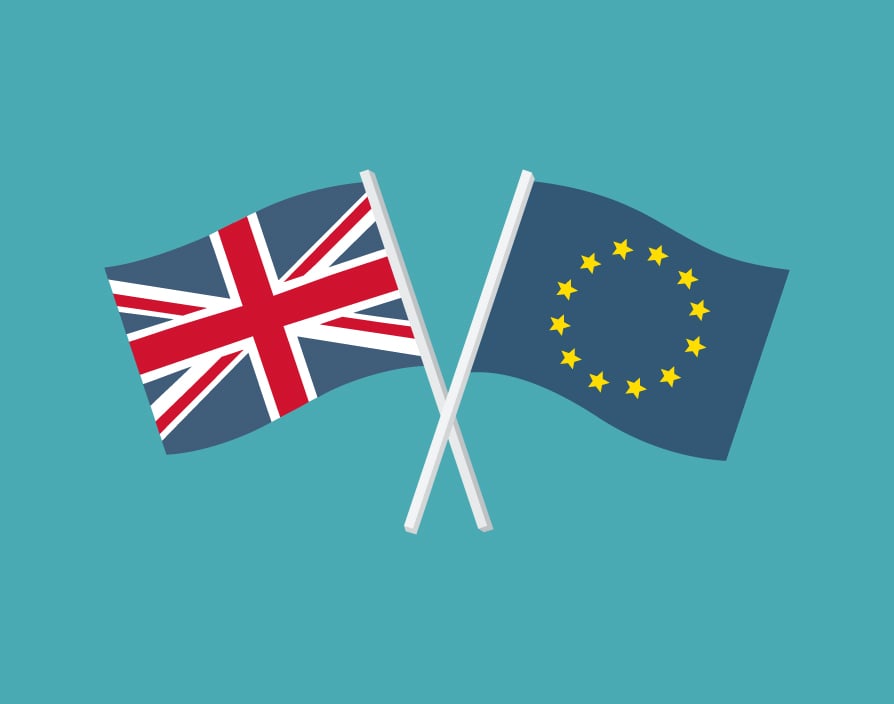Let’s talk about Brexit. Whether you believe the divorce will enable Britain to reclaim its sovereignty or it’s the biggest wound the nation’s populous has ever inflicted upon itself, leaving the EU will have considerable effects on British businesses. Of course, corporate chieftains have known Friday March 29 2019 is the final exit date ever since Theresa May triggered Article 50 in 2017. Since then, they’ve had opportunities aplenty to lay down plans, devise stratagems and iron out grand designs for how their companies will survive the break-up. However, it seems like most SMEs have yet to prepare for Blighty’s exodus from the trading bloc.
Having surveyed 1,083 small-business leaders, new research from international payment services company WorldFirst revealed 65% of UK SMEs have done zilch to protect their brands from the separation fallout. And that’s despite 34% of them believing sterling will plummet by 10% after Brexit. Dismaying as these figures are, it’s still not too late to do something to protect your business and its international commitments. “Above all, SMEs can’t afford to do nothing,” says Caroline Milton, partner and manufacturing sector specialist at Menzies, the accountancy firm.
But don’t rush in blindly. Instead, ensure you know what you’re working with. “The first step is definitely [to] audit where you are now,” says Jennifer Claire Robson, founder of Routes & Branches, the small business export consultancy, and author of the book Export. Thrive. Change the World. This means taking a long, hard look at your strengths, weaknesses, staff, supply chains, financials and intellectual properties. When you do, try to imagine what dangers may lay ahead for each vertical and what the worst case scenario would look like. “You can then plan for those fears and overcome them,” Robson explains.
For instance, many SMEs will have to face the fear of how new post-Brexit trading regulations will look. “Because, obviously, the rules are going to change,” Robson states. Recognising these concerns will empower you to adjust to the changing circumstance. The most obvious example is what would happen in a no-deal scenario when it comes to British trade with Europe. In that case, the default would be to revert to World Trade Organization rules. “Well, we already know what they are and what impact they would have because they’re already in use in other countries,” Robson comforts. “Smart small businesses are already looking at these rules and what will happen [if they’re] applied.” In other words, while Britain separating from the EU could end up being all about the survival of the fittest, facing your fears could see you become a happy child of divorce if you’ve done your homework.
Your audit should also include checking your financials. “Aside from an impact on turnover, there is a risk that investment levels could fall after Brexit,” says Richard Litchfield, head of operations at Lending Works, the financial services company. While the market has so far avoided the apocalyptic nosedive predicted before the referendum, the economy has continued to disappoint. Having had the fastest growing economy in the G7 between 2013 and 2016, the UK’s growth slumped to the back of the pack in the first six months of 2018, according to figures from the OECD, the intergovernmental economic organisation. Moreover, as the debate about the divorce deal intensified in December 2018, the sterling dropped to its lowest level since April 2017. Given market uncertainties are still likely to be a common feature over the foreseeable future, saving some money for a rainy day seems increasingly like a winning strategy for British businesses. “And, in the event of a smooth Brexit, they’ll then be well placed to unleash these reserves in the form of future investment,” argues Litchfield.
Another important consideration is what will happen to your supply chain after March 2019. “For an SME manufacturer reliant on EU imports, changes affecting tariffs and customs arrangements could pose the greatest risk, either through delays [or] increased costs,” says Milton. Protecting themselves from skyrocketing costs, British businesses could, for instance, look into ways of reducing cross-border movements. “To facilitate this, they could consider outsourcing key processes or, alternatively, [initiate] an acquisition or joint venture in order to establish a facility in continental Europe,” Milton advises.
Indeed, partnering up with other companies could have more advantages than just saving SMEs’ supply chains. “They can buddy-up with other businesses of a similar size and scale to increase their chances of success,” suggests Patrick Gallagher, CEO of CitySprint Group, the logistics and courier firm. He claims that doing so can also help businesses unlock sales and marketing opportunities, setting them up for a more promising future. “Nurturing relationships and working with like-minded SMEs will play a vital role for business success going forward,” Gallagher argues.
Brexiteers – like former foreign secretary Boris Johnson and secretary of state for international trade Liam Fox – have long pointed out that breaking up with the EU could enable Britain to sign new trade deals with other countries around the world. Often, they’ve hinted that strengthening the UK’s bonds with the Commonwealth is just the way to do it. While it’s fair to point out that reinvigorating relationships with the Anglosphere would enable British businesses to tap into about a third of the world population’s spending power, others have criticised the notion that the 9.5% of UK exports that go to the Commonwealth today will not be enough to counter potentially losing the 48% going to EU countries. “If the Commonwealth is the future, then we’re in even more trouble than I thought,” quipped Philip Murphy, the director of the Institute of Commonwealth Studies, in an essay in the Guardian in April 2018.
Nevertheless, the idea of expanding one’s horizons beyond the EU does hold water to SMEs. “Exporting to new markets with thriving economies where British goods are in demand, such as many Asia countries, is one way to boost the way if the UK economy is performing poorly,” says Siddharth Shankar, CEO of Tails Trading, the company exporting UK products around the world. But don’t jump in at the deep end before testing the waters. “In-depth research into whether a market is a good fit for your product and brand values is essential before implementing this strategy,” he warns.
Ever since 51.89% of the UK populous voted to leave the EU, one of the key concerns for UK SMEs has been the access to labour from European countries. “Put skills at the top of the agenda,” says Tom Huckle, lead cybersecurity consultant and head of training and development at Crucial Group, the professional information technology and services company. “It’s no secret the country faces a skills shortage that most employers believe will worsen following Brexit.” Indeed, this is hardly a small concern given 8.5% of UK employees came from an EU country in 2017, according to The Migration Observatory at Oxford University. Again, the way forward in this matter is to face your fears and start planning for the eventuality that accessing skilled European staff will become more difficult. Start by looking into what areas are most at risk and then act accordingly. “Whether it is upskilling the workforce, exploring new recruitment pipelines or focusing on retention, UK SMEs in every sector should consider their strategy for beating the skills gap before it widens even further,” Huckle continues.
So no matter if you’ll be celebrating Friday March 29 2019 as Britain’s new independence day or feel it’s like the doomsday clock striking apocalypse now-ish, you alone can determine if your business will survive Brexit. ![]()
Share via:








































